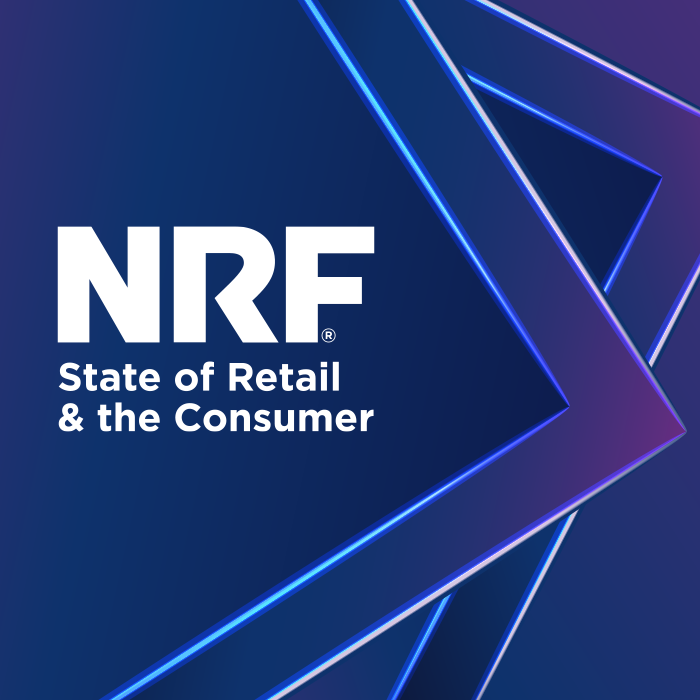4 retail industry priorities for sustaining U.S. economic growth
)
Policy Spotlight
Learn more about NRF's top policy priorities.
The first seven months of the second Trump administration have been filled with a flurry of activity across multiple policy issue areas. Americans have witnessed major undertakings in spending cuts, deregulation, government restructuring and aggressive approaches to priority policy areas.
The first major legislative victory for the administration was delivered through the One Big Beautiful Bill Act, which was signed into law on July 4. Retailers welcomed the achievement as it provides certainty and maintains pro-growth policies.
As Congress heads into its annual August recess, retailers are ramping up for key shopping seasons. Here are four policy priorities NRF is focusing on to ensure the continued growth and health of the U.S. economy.
Promoting alternative solutions to trade policy
The current approach to trade policy, which emphasizes the use of broad-based tariffs, continues to create an environment of uncertainty and increased costs for American businesses of all types and sizes, which will be passed along to U.S. consumers.
According to U.S. Customs and Border Protection, over $100 billion has been collected in tariff revenue since Jan. 20, 2025. Unfortunately, that revenue has been paid by American importers, not foreign trading partners.
The impact of the current trade policy agenda goes far beyond increased costs for retailers and manufacturers.
Retailers’ complex global supply chains are a result of years of investment and planning. Finding alternative sourcing and manufacturing partners requires ample time to ensure quality and scalability. Punitive tariffs also have a chilling effect on innovation and growth. Ultimately, the use of broad-based tariffs leads to a concerning outcome — higher prices for everyday consumer products.
Right now, retailers and consumers are heading into the busiest shopping season of the year. NRF’s research shows that consumers have already started back-to-school shopping early this year from concerns that prices will rise due to tariffs.
Retailers have done their best to mitigate tariff-based price increases through thoughtful planning and inventory management to meet seasonal demands. However, once inventory is depleted, restocking their shelves could come with a hefty price tag should the proposed tariffs go into effect.
With the holiday shopping season around the corner, consumers are rightfully worried about how much more their gifts will cost this year.
Tariffs threaten the American Dream
Small businesses are particularly vulnerable to the negative impacts of record-high tariffs. Learn more.
These increased costs and potential pullback of consumer shopping will be most felt by Main Street businesses that operate on razor-thin margins and have limited resources to absorb heightened operating costs. NRF has hosted four small retailer fly-ins this year with business owners coming from all over the country to tell their lawmakers how the current tariff policy is simply not sustainable.
Equally concerning to retailers is the tariffs’ impact on the workforce. The retail industry is the nation’s largest private-sector employer, supporting over one in four U.S. jobs — 55 million working Americans.
Higher costs and decreased revenue due to declining consumer confidence paint a troubling picture for the job market and the broader economy. That is why NRF continues to advocate for a clear, consistent trade policy that puts American business, workers and consumers first.
We believe the administration can achieve its goals by implementing trade policy that holds our global trading partners accountable, enhances U.S. competitiveness and protects American households from inflationary pressures through a strategic and selective use of tariffs with a clear end goal in mind.
Advancing organized retail crime legislation
Heightened levels of theft, violence and organized retail crime continue to plague retailers despite their best efforts to curb these incidents and ensure the safety of their customers and workers. These efforts include enhanced security protocols, store reconfigurations, additional employee training and continued partnerships with law enforcement agencies.
These endeavors alone are not enough to fully deal with the scope and complexity of these crimes. Thankfully, significant momentum has been built at the federal level and in Congress to tackle this pervasive issue.
An inside look at ORC
San Diego County District Attorney Summer Stephan joined the Retail Gets Real podcast to discuss the fight against organized retail crime. Listen to the episode.
The Combating Organized Retail Crime Act of 2025 (H.R.2853/S.1404) was reintroduced in April. The legislation would help address the severe economic and safety threats posed by organized retail crime by creating greater coordination and providing increased resources for law enforcement at all levels. The bill has garnered broad bipartisan support with 129 co-sponsors in the House of Representatives and 28 in the Senate.
In addition, the Senate Judiciary Committee recently held a hearing focused on the issues of organized retail crime and supply chain theft. The hearing highlighted the sophisticated nature of retail crime and the threat it poses to the safety of communities that retailers serve. NRF submitted written comments for the record and a letter signed by over 260 retail members in support of CORCA.
NRF continues to work with Congress to ensure law enforcement agencies and retailers have the necessary resources at their disposal to adequately address organized retail crime. Passage of the Combating Organized Retail Crime Act is an essential step toward accomplishing that mission.
Fostering a competitive payments system
Congress has been hard at work in recent months to advance stablecoin and broader cryptocurrency legislation. The GENIUS Act, a regulatory framework for payment stablecoins, successfully made its way through Congress and was signed into law by President Trump. While the potential of stablecoins and other digital assets offers an innovative new frontier for the payments landscape, one overarching concern remains: the lack of competition in the payments system.
Swipe Fees
In 2024 alone, U.S. businesses paid a record $187.2 billion in credit and debit card swipe fees. Learn more.
Visa, Mastercard and Wall Street banks have maintained their stranglehold on the payments ecosystem. Their dominance of the credit and debit markets continues to force ever-increasing fees onto retailers, leading to higher prices for consumers.
In 2024 alone, U.S. businesses paid a record $187.2 billion in credit and debit card swipe fees. Swipe fees are most retailers’ highest operating cost after labor, driving up consumer prices by nearly $1,200 a year for the average household. With a firm grasp on traditional card payments, the network and bank giants have turned their focus to digital assets.
The Trump administration and Congress have made concerted efforts to modernize U.S. payments by emphasizing digital payments and promoting innovation. To no retailer’s surprise, however, the legacy financial institutions are already making moves to dominate this new landscape. The networks and banks, long been opposed to the advancement of stablecoins, are now pursuing endeavors to issue digital tokens and facilitate stablecoin transactions on their networks.
Major banks are considering substantial fees for fintech companies seeking to access consumer data (at the consumer’s discretion) to enable open banking services and other emerging payment technologies. These unsettling developments underscore the need for increased competition in payments.
NRF continues to advocate for the Credit Card Competition Act, a bipartisan and free market approach to delivering this much-needed competition. Retailers and the broader merchant community have been fighting for fairer fees for decades, and recent polling highlights growing consumer support for those efforts.
The legislation would provide meaningful relief to merchants and their customers, while also delivering on the administration’s goal of proliferating a truly competitive and innovative U.S. payments ecosystem.
Reforming the immigration system to provide certainty and sustainability
The Trump administration’s approach toward immigration policy has included immigration raids on private-sector facilities and the termination of work authorizations of previously legally employed foreign-born workers. Although NRF shares the administration’s goal of bolstering security, the impact of these policies on essential workers and the broader workforce has been significant. Retailers, like other employers from across the economy, are reliant on these workers.
The administration’s recent acknowledgement of the vital role essential workers play in the workforce and economy was a welcome development. NRF continues to emphasize the need for viable legal immigration pathways, as the current immigration system has long failed to adequately meet the nation’s workforce needs.
Specific solutions include expanding and modernizing visa programs, promoting fair and efficient processing, and providing stability and certainty for long-serving essential workers.
Reforming the current immigration system has long been a difficult task, but we are hopeful that continued collaboration with the administration will yield practical and sustainable solutions for both essential workers and U.S. businesses.





